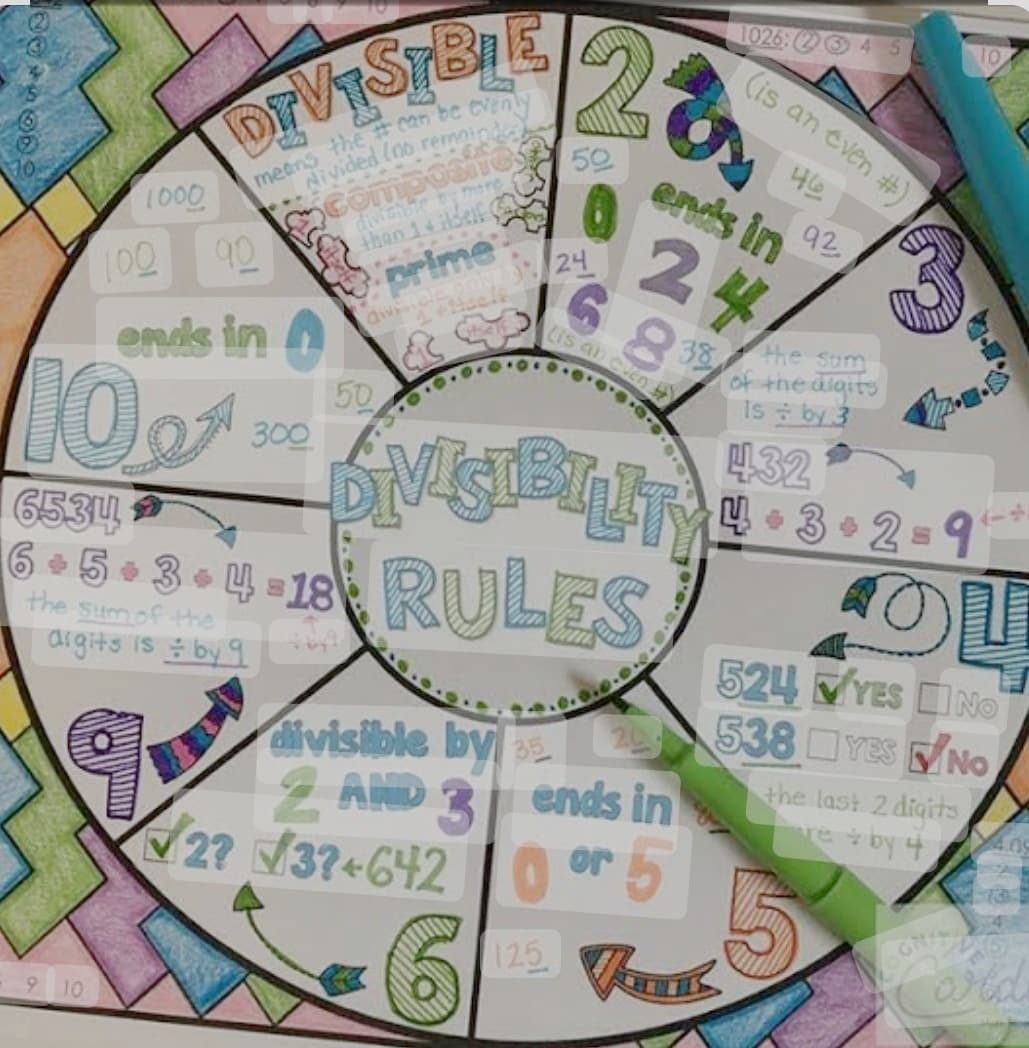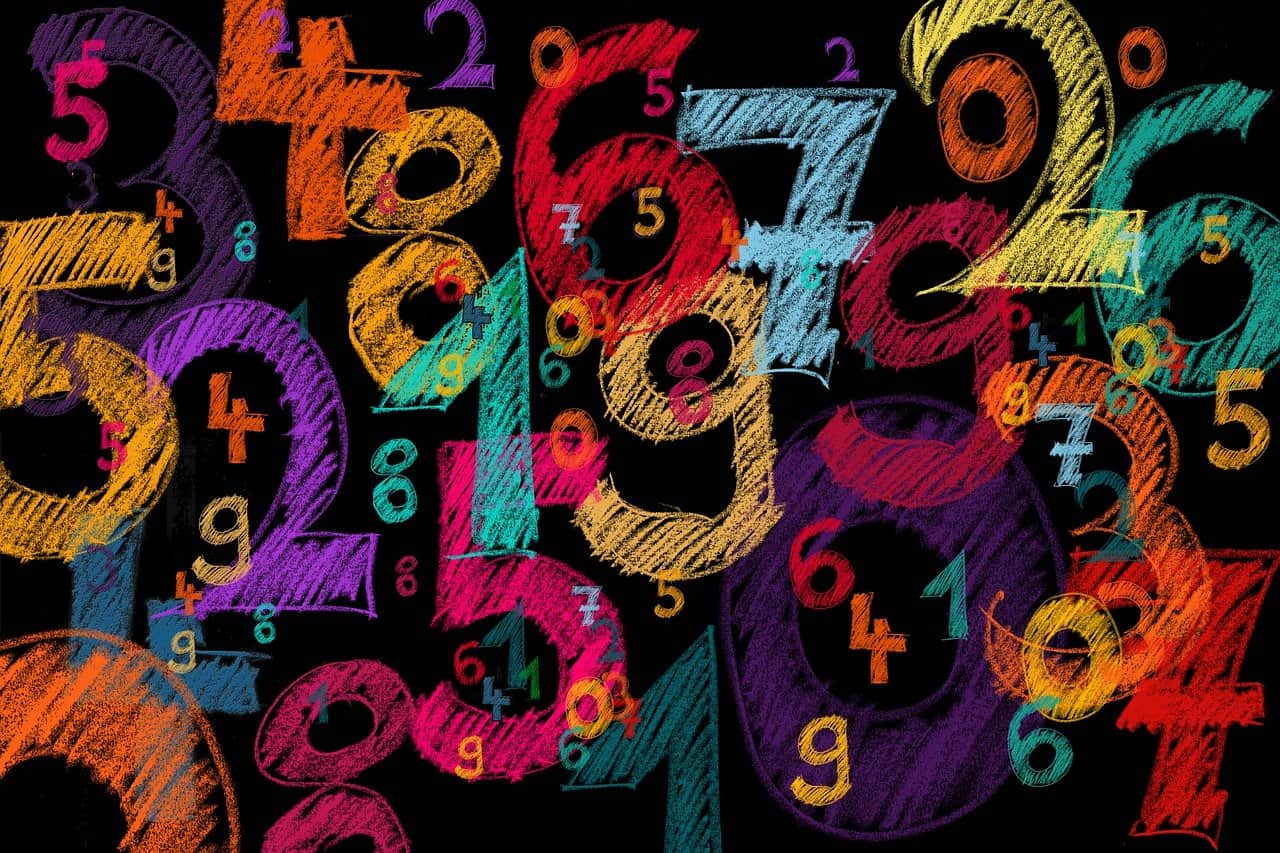divisibility rule is a method or guideline used to determine whether one number can be divided evenly by another number without using division. These rule provide shortcuts for mental math and quick calculations.
Each divisibility rule is specific to a divisor (the number by which we are testing for divisibility). The rules often rely on patterns or properties of numbers to quickly determine divisibility without performing the actual division operation.

Table of Contents
What is Divisibility Rule?
Divisibility rules are rules that are applied to a number to check whether the given number is divisible by a particular number or not.
Divisibility Rules:
Divisibility Rule for 2-
A given number is divisible by 2, if the last digit of a number is even (0, 2, 4, 6 or 8 ).
Example1: Let’s check if the number 234 is divisible by 2.
Solution: 234 is divisible by 2 because last digit of 234 is even.
Example2: Let’s check if the number 121 is divisible by 2.
Solution:121 is not divisible by 2 because last of 121 is not even.
Divisibility Rule for 3-
A given number is divisible by 3, if the sum of its digits is divisible by 3.
Example1: Let’s check if the number 5712 is divisible by 3.
Solution: Sum of its digits =(5+7+1+2)= 15, which is divisible by 3.
Therefore, 5712 is divisible by 3.
Example2: Let’s check if the number 3421 is divisible by 3.
Solution: Sum of its digits = (3+4+2+1)= 10, which is not divisible by 3.
Therefore, 3421 is not divisible by 3.
Divisibility Rule for 4-
A given number is divisible by 4, if the last two digits are divisible by 4.
Example1: Let’s check if the number 5416 is divisible by 4.
Solution: 5416 is divisible by 4 because last two digits of 5416 is 16, which is divisible by 4; (16÷4=4).
Example2:Let’s check if the number 1233 is divisible by 4.
Solution: 1233 is not divisible by 4 because last two digits of 1233 is 33, which is not divisible by 4.
Divisibility Rule for 5-
A given number is divisible by 5, if its last digit is 0 or 5.
Example1: Let’s check if the number 4675 is divisible by 5.
Solution: 4675 is divisible by 5 because last digit of 4675 is 5.
Example2: Let’s check if the number 2344 is divisible by 5.
Solution :2344 is not divisible by 5 because last digit of 2344 is 4.
Divisibility Rule for 6-
A given number is divisible by 6, if it is divisible by both 2 and 3.
Example1:Let’s check if the number 3432 is divisible by 6.
Solution: 3432 is divisible by 2 because last digit of 3432 is even.
Sum of its digits =(3+4+3+2)= 12, which is divisible by 3.
Therefore, 3432 is divisible by both 2 and 3.
Hence, 3432 is divisible by 6.
Example2:Let’s check if the number 4761 is divisible by 6.
Solution: 4761 is not divisible by 2 because last digit of 4761 is not even.
Hence, 4761 is not divisible by 6.
Divisibility Rule for 7-
A given number is divisible by 7, if the difference between twice the unit digit of the given number and the remaining part of the given number should be equal to 0 or the multiples of 7.
Example1: Let’s check if the number 812 is divisible by 7.
Solution: Step1-Double the last digit (2)= 2×2=4.
Step 2-Subtract the result from the rest of the number: 81-4=77.
Since, 77 is divisible by 7, then 812 is also divisible by 7.
Example2:Let’s check if the number 342 is divisible by 7.
Solution: Step1-Double the last digit (2)= 2×2=4.
Step2-Subtract the result from the rest of the number: 34-4=30.
Since, 30 is not divisible by7, then 342 is not divisible by 7.
Divisibility Rule for 8-
A given number is divisible by 8, if the number formed by its last three digits is divisible by 8.
Example1:Let’s check if the number 31480 is divisible by 8.
Solution: 31480 is divisible by 8 because last three digits of the number 31480 is 480, which is divisible by 8; (480÷8=60).
Example2:Let’s check if the number 11330 is divisible by 8.
Solution: 11330 is not divisible by 8 because last three digits of the number 11330 is 330, which is not divisible by 8.
Divisibility Rule for 9-
A given number is divisible by 9, if the sum of its digits are divisible by 9.
Example1: Let’s check if the number 459 is divisible by 9.
Solution: Sum of its digits= (4+5+9)= 18, which is divisible by 9.
Therefore, 459 is divisible by 9.
Example2: Let’s check if the number 413 is divisible by 9.
Solution: Sum of its digits=(4+1+3)=8, which is not divisible by 9.
Therefore, 413 is not divisible by 9.
Divisibility Rule for 10-
A given number is divisible by 10, if the last digit of the number is 0.
Example1: Let’s check if the number 3100 is divisible by 10.
Solution: 3100 is divisible by 10 because last digit of the number 3100 is 0.
Example2: Let’s check if the number 4342 is divisible by 10.
Solution: 4342 is not divisible by 10 because last digit of the number 4342 is not 0.
Divisibility Rule for 11-
A given number is divisible by 11, if the difference between the sum of the digits in the odd places and even places must be 0 or a multiple of 11.
Example1: Let’s check if the number 1331 is divisible by 11.
Step1- Sum of the digits in the odd places= 1+3=4.
Step2- Sum of the digits in the even places= 3+1=4.
Step3- Their difference= 4-4=0
Therefore, 1331 is divisible by 11.
Example2: Let’s check if the number 4342 is divisible by 11.
Step1- Sum of the digits in the odd places = 2+3=5.
Step2- Sum of the digits in the even places = 4+4=8.
Step3– Their difference=8-5=3, 3 is not a multiple of 11.
Therefore, 4342 is not divisible by 11.
Divisibility Rule for 13-
The divisibility Rule for 13 is a bit more complex compared to some other rules. Here are some steps to check if a number is divisible by 13.
Step1-Take the last digit and multiply it by 9.
Step2-Subtract this product from the number formed by the other digits, if the result is divisible by 13, then the original number is also divisible by 13.
For example: Let’s say we have the number 234.
Step1-Take the last digit, 4 and multiply it by 9; (4×9=36).
Step2- Subtract 36 from the number formed by the other digits: (23-36=-13); Since -13 is divisible by 13, then, the original number 234 is also divisible by 13.
Divisibility Rule for 17-
Divisibility Rule for 17 is not as straightforward as some other rules, but here are some steps to check if a number is divisible by 17.
Step1- Take the last digit of the number.
Step2-Multiply it by 5 and subtract it to the rest of the number without the last digit, if the result is divisible by 17, then the original number is also divisible by 17.
For example: Let’s use the number 204.
Step1- Take the last digit; 4.
Step2-Multi[ply it by 5; (5×4=20).
Step3-Subtract 20 to the rest of the number without the last digit; 20-20=0; Since 0 is divisible by 17.
Therefore, 204 is also divisible by 17.
Divisibility Rule for 25-
A given number is divisible by 25, if the last two digits of the number is divisible by 25.
Example1: Let’s check if the number 3425 is divisible by 25.
Solution– 3425 is divisible by 25 because last two digits of the number 3425 is 25, which is divisible by 25;(25÷25=1).
Example2: Let’s check if the number 1234 is divisible by 25.
Solution-1234 is not divisible by 25, because last two digits of the number 1234 is 34, which is not divisible by 25.
Divisibility Rule for 125-
A given number is divisible by 125, if the last three digits of the number is divisible by 125.
Example1: Let’s check if the number 34625 is divisible by 125.
Solution-34625 is divisible by 125 because last three digits of the number 34625 is 625, which is divisible by 125; (625÷125=5).
Practice Questions
- What is the divisibility rule of 6?
- Let’s check if the number 5345 is divisible by 5.
- What is divisibility rule?

